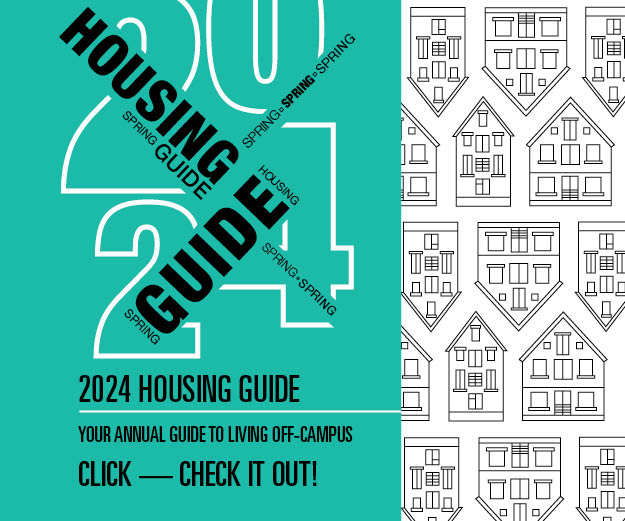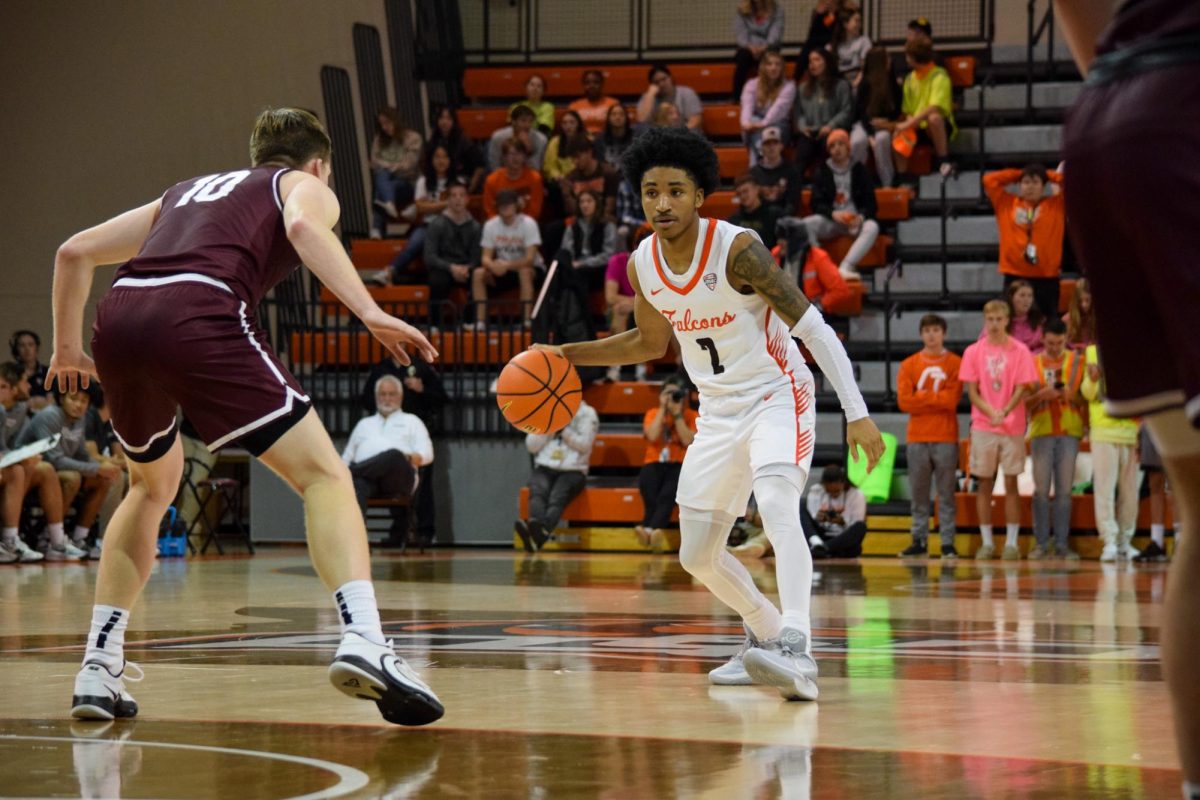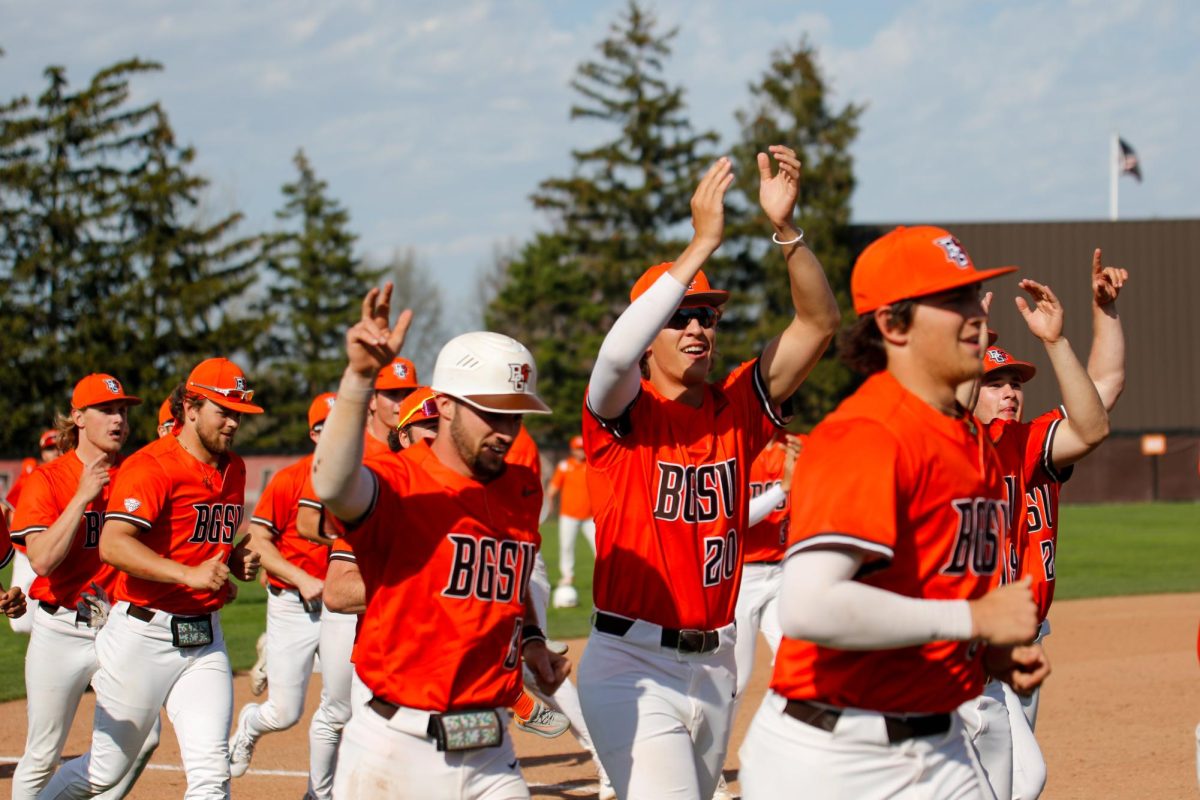Editor’s note: Thirty years ago, BGSU’s Board of Trustees created an ad hoc police review panel following complaints of harassment from the Black Student Union and Human Rights Alliance.
This column is the second of three exploring the climate in 1977 and the discussion that continues today.
University Vice President Richard Edwards had just telephoned me with an admonishment that went something like this: “I know you want it, I know you’ve been asking everybody for it, but you need to give up, because there’s no way you’re going to get it. There’s a press conference tomorrow and you can get it there like everybody else.”
Click!
I was a senior, a journalism major and a veteran reporter for The BG News. My “beat” included covering the campus police department, the Black Student Union and the college administration, and a big story was brewing that involved all three. Edwards was talking about the Ad Hoc Police Panel Final Report and Recommendations due out the next day, Thursday, Nov. 10, 1977.
This report culminated a seven-month, University-initiated study begun after the Black Student Union presented documented evidence of harassment of black students, neglect of duty and ineffective complaint procedures, among other problems with the campus police department. Before that, BSU members had taken their concerns to the newspaper and to the college administration in an effort to get someone to listen and help. Finally, in April 1977, the Board of Trustees convened an ad hoc (created for a specific purpose) panel, composed of two students, two faculty members, two administrators and two trustees to address this volatile situation. Now, the study was done and the final report was written, but it was all very secretive.
I had been trying all week – heck, longer than that – to get my hands on the final police panel report early, so I could get a great scoop. I had been covering campus police problems leading up to the need for the panel for more than a year. I felt like I owned this story and I wanted our campus paper to get the final report and recommendations first. Now this night, Wednesday, Nov. 9, I literally had only a few hours to get it and make deadline. If I could make deadline tonight, Thursday’s issue would have the story first thing in the morning, ahead of the 10 a.m. press conference and a day ahead of other media. If not, I would have the story on Friday like everyone else.
Looking back, I know I was absolutely obsessed with getting this report, and deadline closing in on me only added to the pulse-racing excitement.
The top college administrative echelon, on the other hand, did not want this report put out early. It had been a long time coming and those involved wanted to release it their way, in an orderly fashion – hand out the same report at the same time to everyone at the Board of Trustees meeting the next morning. We were expecting news media from at least three states.
With time running out, I had exhausted about every source I could think of, including all eight members of the ad hoc police panel who had declined to help me. There was a gag order preventing them from talking to the press and from releasing any documents. The only person who could talk to the media or release reports was the chairman of the panel, local attorney M. Shad Hanna, and he had been handling the task masterfully – by not saying anything substantive. And, he was apparently keeping the final draft of the report under lock and key. As far as I knew, nobody even had it. Maybe they were going to run it off the next morning before the meeting.
Similarly, Lt. Dean Gerkens of the campus police department, who was serving as active police chief, always tried his best to answer our questions as spokesman for the department.
The ad hoc panel heard testimony on the campus police problems for about five months before deliberating and writing its report. The press was barred from most of the process because it related to personnel, although sometimes we were allowed in the hearings for opening statements only. The BSU and press pleaded with the panel to open its proceedings, but the panel never did. This made it very difficult to keep the campus community informed along the way but forced me to develop sources. And sometimes there were leaks from a variety of places.
As I continued my quest that night, I know I was driven on even more by Edwards’s words ringing in my ears that I was going to fail. I decided I would prove him wrong or die trying. I unmercifully hounded – I mean, politely asked – people who had access to the information as well as those who did not, in person and on the phone: Could you tell me what will be in the final report tomorrow? Better yet, could you manage to get me a copy of it? Now, around this same time, I was also starting to think about this: If I get the report, how can I assure its safe arrival at the paper? I did not have a car. I couldn’t walk around campus with it for God’s sake.
Trying to predict every possible pitfall that might keep me from printing that story, I called my mother in Port Clinton and asked her to make the hour-long drive to campus in the event I got the report so she could drive it and me to the paper.
Mom came through and now I had wheels and a chauffeur. She drove me places and waited while I went inside to talk to people or make phone calls. We kept up a persistent pursuit, never losing sight of the goal, leaving no stone unturned – until, at last, I got a very big break. There was starting to be some hope, that’s all I can say. I was told to go to the library and wait. Someone either had it or was going to get it, I just knew it.
With intense feelings of anticipation, suspense and a little desperation, I returned to the car, and it was on to the library posthaste. I hurried in while Mom again waited. After what seemed like an eternity, the moment arrived, someone placed an envelope in my hands, and it was mine. It happened so fast, the next moment I was standing there alone with the elusive document in my hot, sweaty palms. I didn’t even look at it because I had no doubt it was the report. I remember thinking what an exciting career I had ahead of me if this is what it was going to be like.
No time to waste. I ran down the library steps and out to the car that was waiting for me. Mom stepped on the gas.
She dropped me safely at The BG News offices at 106 University Hall and watched me go inside, successfully concluding her operation and happy to be headed home.
Thirty years later she still vividly recalls the key role she played.
“I drove the getaway car,” she proclaims proudly, but also readily admits, “I sat out in front of some tall building and I was scared.”
I must have looked like the cat that caught the canary when I walked into the newsroom, tightly clutching my prize, a plain white envelope that held the police panel recommendations. I’ll never forget Editor Pat Thomas and Managing Editor Dennis Sadowski, instinctively knowing what it was and both greeting me, apprehensively, with, “We just have one question. Did you or Emil steal it?” My bosses knew how badly I had wanted that report and needed to get that question out of the way first thing. I replied, “No,” and that was the truth. I could tell they believed me. They didn’t ask me anything else. Emil Dansker was my journalism professor extraordinaire for four years as well as The BG News adviser.
The next order of business was to see just what we had. I took the papers out of the envelope and we looked at them carefully. DAMN – We all noticed it at the same time. This was not the final report and recommendations of the ad hoc police panel. It was clearly marked “SECOND DRAFT” of the report and recommendations of the ad hoc police panel, and a lot of editing had been done on the pages. But, we also knew it was as close as we were going to get at this late hour. It was very readable and clear and maybe the final draft coming out tomorrow was not going to be much different. But then again maybe it was going to be very different. How many more drafts had there been after the second draft? One? Ten? We had no way to know. And no way to find out.
For one brief moment, I’m sure my heart must have stopped. Should we print it? They wondered. Would uncertainty about how current this report was kill the story?
No way! Of course, that was my vote. But what would be the decision of my bosses, the decision I would have to follow and live with? I reasoned and they agreed that it seemed to be a very thorough draft, complete and final sounding. Dansker was kept in the loop as he requested but, as usual, was counting on his student journalists to arrive at their own course of action. He deferred to us and would stand by our decision. Meanwhile, I’m starting to sweat because the time I need to decipher the report and write this article is ticking away.
In the end, we believed the public’s right to know and to know first in our paper outweighed the risk we took that some areas of the final report would be different. We decided not only to run with the story but to copyright it as well because it was an “exclusive.” I started my well-known pounding on the typewriter (no computers back then). I don’t remember how much time I had but it wasn’t much.
The recommendations were sweeping. The panel called for a new police program, emphasizing safety and service rather than law enforcement. The campus police department would now be known as the department of public safety, and the long-sought police review board would become a reality, the report said.
I remember I couldn’t even think of a lead. I started to write the body of the story first, then threw in a lead at the end that I was never particularly happy with. It certainly was not my finest piece of writing.
Interestingly, some people believed we never had a report in our possession at all because of the way we presented the story. It never attributes anything to a report or a document but instead only quotes “sources.” This theory held that someone quoted from it or read it to me over the phone.
As I recall, we attributed the story to sources instead of a report so as not to mislead or confuse readers by implying that we had the final report and we did not want to reveal just what we had in case it would somehow compromise our sources.
We did err slightly. We took the phrase, “The problems are tragic in their implications,” out of the report we had and used it in the story and in the headline. The next day when I got the final report at the press conference I saw that that phrase had been stricken. But, other than that one goof – and how would we have known? – all other changes that were made in the final report turned out to be relatively minor ones. Whew!
On Thursday, the press conference seemed a bit anti-climactic. The focus of our second-day story was that the college Board of Trustees accepted the recommendations of the ad hoc police panel, moved that the administration implement them and begin a search for a director of the new department of “campus safety.” (The second draft had called it the department of “public safety.”) Hanna told trustees the process to select that leader was “the most important matter that confronts the university.” In the second-day story, I had more time and space to focus and elaborate on the specific recommendations that included such things as a change in uniforms, rotation of duties and education requirements for police officers.
I came out of my adventure unscathed, no one yelled at me and I don’t even remember any dirty looks. I heard there was some fallout among staff and other high ranking officials with meetings and tirades over the leak. As far as I know, no one was ever cornered.
I remember regretting that I would not be on campus to continue to follow the police story. What happened in the aftermath? Were the recommendations implemented and what impact did they have? What was the long-term result of the police panel’s work? Some of those issues will be addressed in tomorrow’s column.
Julie Hohman is a University alumna and was a BG News reporter from 1975 until 1978.

















